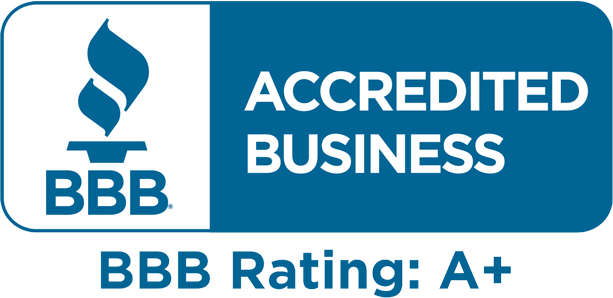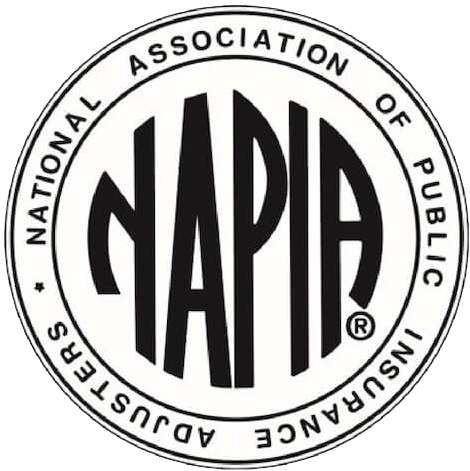9 Common Homeowners Insurance Mistakes Made by New Homeowners
There are lots of exciting parts about becoming a new homeowner.
Shopping for homeowners insurance isn’t exactly exciting – but it’s still important. And often, misleading and confusing.

You normally don’t even get a copy of your policy until after you have made your first payment. The insurance company sends you a Declarations Page with your coverage amounts for your home, other structures and your contents. Even if it looks good on those papers, you won’t know what is covered and how it is covered until you get your policy in the mail.
Homeowners insurance is one of the most important parts of home ownership. It protects the biggest asset most people own.
Unfortunately, many new homeowners make mistakes with homeowners insurance. These mistakes can cost you a fortune.
Here are 9 common mistakes new homeowners make with homeowners insurance.
Not Realizing Flood Insurance is Excluded on Virtually All Policies
A standard homeowners insurance policy does not cover flood insurance.
You can buy flood insurance through the National Flood Insurance Program (NFIP), which is run by FEMA.
According to FEMA, just one inch of floodwater can cause up to, and sometimes even over, $25,000 worth of damage. If you don’t have a flood insurance policy, then you’ll need to pay for that damage out of pocket.
If you live in a flood zone, then your lender may have required you to buy flood insurance. However, flooding can occur anywhere – even outside of high-risk flood zones. Assess your home’s flood risk to determine if flood insurance is worth it. If you are not in a flood zone, the cost is very low for the coverage that you receive.
Not Carrying High Enough Limits
Read your homeowners insurance policy to ensure you understand your limits.
A homeowners insurance policy has 4 limits you need to check for: dwelling coverage, other structure coverage, personal property coverage and additional living expenses coverage.
- Dwelling coverage covers the cost of repairing or rebuilding your home. If your house is involved in a total loss insurance claim, then your dwelling coverage should be enough to repair or rebuild your home, based on the cost of building or buying in your area.
- Other Structures coverage covers the cost of repairing or rebuilding your detached garage, your fencing, any deck work or storage sheds. Anything that is not attached to your home needs to have its own coverage and most policies cover about 10% of your dwelling coverage.
- Personal property coverage typically consists of 50% to 70% of your dwelling coverage. It covers the property within your home. If you have $400,000 of dwelling coverage, for example, then your home insurance policy would cover a maximum of $200,000 of possessions.
- Additional Living Expenses is coverage that will allow you to move into safe living quarters after a major loss like a fire or a burst pipe that has made your home uninhabitable. This coverage should be for the actual amount of time that it takes you to repair your home, but some policies only cover a specific amount. This is not good as you don’t know how long it will take to repair your home after a major loss.
Review your limits to ensure you’re carrying the right amount of coverage. You don’t want to be underinsured or over-insured.
Not Understanding Deductibles
You probably have a basic understanding of how deductibles work. However, they can still surprise homeowners.
You pay your deductible when making a home insurance claim. You might have a deductible of $1,000 to $2,000, for example. You pay this amount, and your insurer covers the rest.
However, not all claims have the same deductible. Check your policy for any unique deductibles.
Many insurers use a much higher deductible for hurricane insurance claims, for example. You might need to pay 2% to 5% of the dwelling coverage as a deductible instead of paying just $1,000 for your insurance claim, you could pay $20,000 or more..
Check your insurance policy to ensure you understand all the deductibles you may need to pay. Some policies make you pay a deductible for each coverage mentioned above.
Buying Actual Cash Value Coverage When You Expected Replacement Cost Coverage
Your homeowners insurance policy covers the structure of your home and all the possessions within your home.
However, many standard homeowners insurance policies use actual cash value coverage – not replacement value coverage. That makes a huge difference for claims:
- Actual cash value coverage compensates you for items minus depreciation. You may have purchased a brand new, 65” TV five years ago for $2,500. However, because of depreciation, that TV is only worth $250 today – which is what your insurer will pay.
- Replacement cost coverage covers the cost of replacing your damaged items with new items of a similar level of quality. You replace damaged items with items that are similar, and your insurer covers 100% of the cost. If a new 65” TV costs $1,500 TV, then your insurer would pay $1,500. However, don’t be surprised if your insurer only covers the actual cash value until you actually replace the items and turn in the proof of payment. This is more common now than ever before.
Not Securing the Property to Prevent Further Damage After a Disaster
You have an obligation to secure your property and prevent further damage after a disaster, if it is safe to do so.
If a storm tears a hole in your roof, for example, and causes water to pour in, then you can place a tarp over this hole to prevent further damage to your property. You should not make “permanent repairs” until after your claims adjuster has been to your property to inspect the damages.
If you simply allow more damage to occur to your property after a loss or if you make a permanent repair, then your insurer could deny certain parts of your claim.
Cleaning Up Too Much After a Disaster
It may be tempting, but avoid cleaning up too much after a disaster. Otherwise, there may not be enough evidence for your insurer.
You may naturally want to clean up your home before contacting your insurer. You should secure the scene and prevent further damage – but you shouldn’t clean up the damage itself until it has been properly documented.
Your home insurance company sends an adjuster to your property to survey the damage. Once the adjuster surveys the damage, you may be able to start cleaning up the damage. Or, you could work with an emergency contractor to clean up the damage. This should be provided to you by your insurance company to avoid disputes between the contractor and your insurer over whether or not the services were necessary.
Waiting Too Long to Report a Claim
The sooner you report a claim to your insurance company, the better. All major insurers maintain 24/7 claims hotlines. As soon as your property is secure and people are safe, contact your insurer.
Your insurer does more than initiate your claim; your insurer can provide you with a cash advance to get a hotel for the night (assuming your house isn’t livable), recommend emergency contractors to begin repairs, and other crucial steps in the hours following the incident.
Not Maintaining a Home Inventory
Many home insurance experts recommend creating a home inventory. However, fewer than 15% of homeowners actually maintain an updated home inventory.
A home inventory should:
- List your possessions
- List the approximate amount of money you paid for each possession (or the exact amount, if you have proof)
- List the date and place where you purchased the possession, if possible
- Separate your possessions by room or area of your home
- Include any accompanying information about the items, like receipts, photos, etc.
- Do a walk through video of your home to include model numbers and serial numbers if available.
It’s easy to remember big items in your home. You may remember your $1,200 couch from Costco, for example.
However, it’s harder to remember the smaller items – like items stored in your attic or basement. Your insurer is required to cover all of these items in your home insurance claim, and they could add thousands to your claim – even if they may not seem like they’re worth much individually.
Not Hiring a Public Adjuster for Complex Claims, Large Claims, or Disputes
Public adjusters are independent professionals who can increase claim payouts, speed up claims, and negotiate with the insurer on your behalf.
Your insurance company has an adjuster. For larger claims, insurance experts often recommend hiring your own adjuster – a public adjuster.
A public adjuster can:
- Negotiate with your insurer on your behalf
- Organize your claim
- Walk through the claim from start to finish
- Increase payout
- Overturn denied or reduced claims
- Work hard to ensure every part of your claim goes smoothly and in your favor
If your insurance claim has a disputed amount worth over $10,000, or if your insurer has denied your claim, then it may be worth hiring a public adjuster.
Final Word
Insurers love it when homeowners make mistakes. It means they can pay less for any upcoming insurance claims.
As a new homeowner, you have a lot to learn – including the intricacies of a homeowners insurance policy.
Review your homeowners insurance policy to see if it still matches your needs.
You may need to adjust coverage – or even switch to a new insurer. However, a little work today can avoid a lot of headaches in the future.
If you don’t understand all of your policy wording, then reach out to a public adjuster for a policy review. They can explain your coverage, or lack of coverage, to you in a way that makes sense. If you have never read a full policy, with endorsements, you can be very confused about the coverages you actually have.






